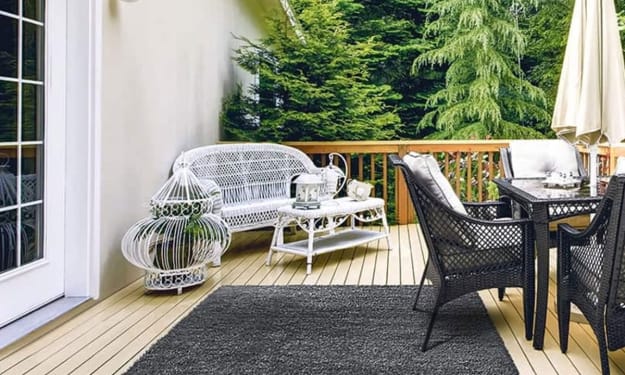How Millennials Can Become Homeowners
Without Breaking the Bank

There's always been a golden rule when it comes to saving your money, don't spend more than 30 percent of your income on housing. Now everything is expensive, especially housing, so how can you get away with not going past that 30 percent? Well, here are a few things you can consider:
Don't go to college.
Yes, I know how that sounds. But keep in mind, there are plenty of jobs available that pay more than minimum wage that don't require a degree. For example: EMT's can start out on average making over $30,000 a year, and have an average growth of 24 percent. It's not a lot of money starting out, but less of your money is going to debt and you have room for growth. You can also use your job experience to become a paramedic and in some places can make you up to $50,000 a year.
You'll most likely have to work more hours, but you can grow and make a good living without a degree, and therefore not pay hundreds of dollars a month on your loans. Or if you must, get your Associate degree from a community college or a certification from a trade school. Make a good living without breaking the bank.
I attended college for one semester and I'm $250 dollars a month on my loans. But without college credit, I got a contract job that paid my loan bills for two months.
Try to live at home.
I understand that this isn't always an option but if you can take advantage of living with little overhead (or maybe even rent free), absolutely take it. This gives you an opportunity to live comfortably and not lose all your money in living expenses. Obviously, you may need to contribute financially on some things, unless your parents are extremely generous, but it's still substantially less than living on your own right out of high school or even college. And also, your parents can keep you on their insurance until you're 26. So if they are willing to do that, take it.
How does this help with being a homeowner? Simple, saving up to put a good down payment on a house. Even if you have a limited income, saving up and putting down a good down payment will give you many options. Emphasize on the down payment.
Now, some places are more expensive. How can you still afford a house? Another simple answer: foreclosures. Yes, you read that right. Buying a foreclosure home can have even more benefits than you may realize. For example, in the state of Connecticut (one of the most expensive states in the country), you can get a 1,400 sq. foot foreclosure for less than $50,000. It may be in rough condition, but if you are good with your hands/know someone who's good with their hands, you can get a lot done yourself. If not, average repairs for a whole home will cost upwards of about $14,000 to about $18,000. Add that to the mortgage and loans, your total loan could possibly be less than $70,000 and you will have a home which will quickly build equity.
A couple other things you can consider are:
- Getting married. If both parties are employed, two incomes always make things a little easier.
- Don't have kids, at least until you're married. I know this sounds like an old-fashioned rule, but not needing to pay for the expenses of children, especially if you're a single parent, gives you much more financial freedom.
- Don't go out/buy as much. This is a simple bare-bones rule, but it's good. I saved about $45 in the first month of brewing my own coffee at home instead of buying it. Also become a coupon-cutter. Who cares how it makes you feel, coupons can save you big on essential items.
There are a lot of options. You need to bust yourself to do a lot of it, but it's far from impossible. You need to make some sacrifices, but that end result of having a place to call your own will make it all worth it!
About the Creator
J. P. Frattini
Culture, music, politics, art. It's all fair game to me
Follow Me on Twitter: https://twitter.com/thejpfrattini






Comments
There are no comments for this story
Be the first to respond and start the conversation.